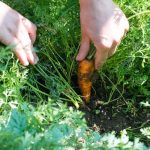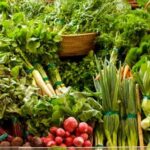Mississippi is a state enriched with a rich agricultural heritage and a land that boasts an abundance of natural beauty. One of the most rewarding and fulfilling ways to connect with this heritage and harness its bountiful offerings is through vegetable gardening. In this article, we will explore the wonders of vegetable gardening in Mississippi, discussing its immense benefits and guiding readers on how to create their very own flourishing gardens.
Vegetable gardening provides not only fresh, delicious produce but also numerous health benefits and a sense of satisfaction in growing your own food. Mississippi’s climate is unique, presenting both challenges and opportunities for vegetable gardeners. Understanding the impact of the climate on gardening practices becomes crucial in achieving successful harvests.
In this article, we will dive into the specific climate patterns of Mississippi and how they affect vegetable gardening. We will explore which vegetables thrive in these conditions and discuss essential tips for selecting the ideal varieties for your garden. Additionally, we will provide step-by-step instructions for preparing and planning your garden space to ensure optimal growth.
From planting techniques to pest control, we will guide you through each step necessary to achieve a thriving vegetable garden in Mississippi. Seasonal care requirements, harvesting tips, and creative recipe ideas using locally grown produce will also be shared to elevate your experience as a gardener.
Throughout the article, we will address common challenges such as pests, diseases, or soil-related issues specific to Mississippi gardens. We’ll offer practical solutions and organic remedies so gardeners can effectively combat these challenges while maintaining an eco-friendly approach.
Furthermore, we’ll provide resources such as local gardening clubs, extension services, workshops, and online communities that enable connections with fellow green thumbs in Mississippi. Embrace the vibrant world of vegetable gardening in Mississippi-a journey filled with beauty, satisfaction, and flavorful rewards awaits.
Understanding the Mississippi Climate and Its Impact on Vegetable Gardening
The climate in Mississippi plays a crucial role in determining the success of vegetable gardening. Understanding the unique climate patterns and their impact on gardening is essential for gardeners to make informed decisions about what to grow and how to care for their plants.
Climate Patterns in Mississippi
Mississippi experiences a humid subtropical climate, which is characterized by long, hot summers and relatively mild winters. The state is also prone to high humidity levels, particularly during the summer months. Gardeners should be prepared for frequent rainfall throughout the year, with the heaviest precipitation occurring from late spring to early fall.
Challenges and Opportunities
The climate in Mississippi presents both challenges and opportunities for vegetable gardeners. On one hand, the long growing season allows for multiple harvests throughout the year, especially for warm-season crops like tomatoes, peppers, and okra. However, the high heat and humidity can create favorable conditions for pests and diseases such as aphids, fungal infections, and bacterial wilt.
Strategies for Success
To overcome these challenges and make the most of Mississippi’s climate, there are several strategies that vegetable gardeners can employ. One important aspect is selecting vegetable varieties that are well-suited to the local conditions. For example, heat-tolerant plants like sweet potatoes, collard greens, and eggplants tend to perform better in Mississippi’s hot summers.
Another key strategy is proper irrigation management. Regular watering is crucial in combating dry spells during the summer months but be careful not to overwater as it can lead to fungal issues due to excess moisture. Additionally, providing shade or using shade cloth can help protect sensitive plants from intense sun exposure.
Furthermore, implementing good cultural practices such as crop rotation, regular soil testing, and applying organic mulch can help manage pests and maintain healthy soil conditions.
By understanding the unique climate patterns of Mississippi and employing appropriate strategies, vegetable gardeners can have a successful and productive growing season. With careful planning and proper care, Mississippi gardens can thrive with an abundance of fresh, homegrown vegetables.
Selecting the Ideal Vegetables for Mississippi Gardens
One of the key factors in successful vegetable gardening is selecting the right vegetables for your specific climate and soil conditions. In Mississippi, where the climate can be hot and humid, it is important to choose vegetables that can thrive in these conditions. Fortunately, there are many vegetables that do well in Mississippi gardens.
When selecting vegetables for your Mississippi garden, it is important to consider the length of the growing season. Some vegetables, such as tomatoes and peppers, require a longer growing season to reach maturity, while others, like lettuce and spinach, can be grown quickly. It is also important to consider the temperature extremes that can occur in Mississippi. Some vegetables are more heat-tolerant than others and will continue to produce throughout the summer months.
Some popular vegetables that do well in Mississippi gardens include okra, sweet potatoes, squash, cucumbers, and green beans. These vegetables are not only heat tolerant but also thrive in Mississippi’s fertile soils. Additionally, they are often used in traditional Southern cuisine and can add a touch of local flavor to your meals.
When choosing seeds or seedlings for your Mississippi garden, look for varieties that are specifically bred for southern climates or labeled as heat-tolerant. This will ensure that your plants have the best chance of success in Mississippi’s unique climate. Local nurseries and garden centers are great places to find high-quality seeds or seedlings that are suited for your area.
By selecting the ideal vegetables for your Mississippi garden based on climate suitability and local culinary preferences, you can increase your chances of a bountiful harvest while enjoying delicious homegrown produce all season long.
Preparing and Planning Your Mississippi Vegetable Garden
When it comes to vegetable gardening in Mississippi, proper preparation and planning are key to a successful harvest. By taking the time to prepare your garden site and plan out your planting strategy, you can maximize your chances of growing healthy and abundant crops. Here are some important steps to consider when preparing and planning your Mississippi vegetable garden:
- Site Selection: Choose a location for your garden that receives at least six hours of direct sunlight each day. Avoid areas that are prone to flooding or have poor drainage. Consider the proximity to a water source as well as any potential shading from nearby trees or structures.
- Soil Preparation: Before planting, it’s important to prepare the soil by clearing away any weeds or debris. Test the soil pH and nutrient levels to assess its fertility. Most vegetables grow best in slightly acidic soil with a pH range of 6.0-7.Take steps to amend the soil if necessary by adding organic matter such as compost or well-rotted manure.
- Garden Layout and Design: Determine the size and layout of your garden based on the available space and the vegetables you plan to grow. Consider companion planting techniques, which involve pairing compatible plants together for mutual benefit. This can help deter pests, improve pollination, and maximize space utilization.
- Crop Rotation: To prevent disease buildup, it’s important to rotate your crops each year. Divide your garden into several sections and designate a different group of vegetables for each section each year, making sure not to plant crops from the same family in consecutive years in the same area.
- Planting Schedule: Different vegetables have different temperature requirements for germination and growth. Consult a planting calendar specifically designed for Mississippi’s climate to determine when is the best time to start seeds indoors or directly sow them outdoors.
By carefully preparing your Mississippi vegetable garden and creating a detailed plan, you can set yourself up for a successful growing season. Remember to regularly monitor and adjust your plan as needed throughout the season, and don’t be afraid to experiment with different techniques and varieties of vegetables. Happy gardening.
Essential Tips for Successful Planting and Growing in Mississippi
In order to have a successful vegetable garden in Mississippi, it is important to follow some essential tips for planting and growing. By implementing proper techniques and practices, gardeners can maximize their yield and ensure the health of their plants.
One important aspect of successful gardening in Mississippi is proper planting techniques. It is crucial to plant vegetables at the right time according to the specific climate of the state. Consulting a planting calendar or seeking advice from local gardening resources can be helpful in determining the optimal times for planting different types of vegetables. Additionally, spacing is key in order to provide enough room for each plant to grow and receive adequate sunlight and nutrients.
Watering is another critical factor in vegetable gardening. In Mississippi’s hot and humid climate, regular watering is essential to support healthy plant growth. It is generally recommended to water deeply but infrequently, allowing the top layer of soil to dry out slightly before watering again. This encourages plants to develop strong root systems that are more resistant to drought.
Fertilizing plays a vital role in supplying necessary nutrients to plants for optimal growth. Conducting a soil test can help determine nutrient levels and deficiencies, allowing gardeners to apply fertilizers accordingly. Organic options such as compost or aged manure are often preferred due to their long-term benefits for soil health.
Finally, pest control is an important aspect of successful vegetable gardening in Mississippi. Regularly inspecting plants for signs of pests or diseases is crucial so that appropriate actions can be taken promptly. Integrated pest management techniques such as handpicking pests, introducing beneficial insects, and using organic remedies can effectively manage pest populations without harmful chemicals.
By following these essential tips for successful planting and growing, vegetable gardeners in Mississippi can experience bountiful harvests while maintaining healthy plants throughout the season.
| Essential Tips | Data |
|---|---|
| Planting Techniques | Consult planting calendar and spacing guidelines |
| Watering | Water deeply but infrequently, allowing soil to dry out slightly before watering again |
| Fertilizing | Conduct soil test and apply organic fertilizers such as compost or aged manure |
| Pest Control | Regularly inspect plants, use integrated pest management techniques and organic remedies |
Managing Common Challenges in Mississippi Vegetable Gardening
Addressing Common Pests and Diseases
Like any other vegetable garden, Mississippi gardens are not immune to pests and diseases. However, being equipped with knowledge about common challenges can help you overcome them effectively. Some common pests in Mississippi gardens include aphids, cutworms, and squash bugs. These pests can be controlled through various methods such as manually picking them off the plants or using organic insecticides.
Diseases like powdery mildew, tomato blight, and bacterial spot are also prevalent in Mississippi’s climate. To prevent these diseases from taking hold in your garden, it is crucial to practice good garden hygiene. This includes regularly removing dead or infected plant material, practicing crop rotation, and providing proper spacing between plants to promote air circulation.
Solving Soil-Related Issues
Soil-related issues can pose challenges for vegetable gardening in Mississippi. Two common problems gardeners face are acidic soil and heavy clay soil. Acidic soil can affect the nutrient availability to plants, while heavy clay soil drains poorly and makes it difficult for roots to access oxygen.
To tackle acidic soil, you can amend it by adding lime or wood ash before planting. This helps raise the pH level and make the soil more favorable for plant growth. For heavy clay soil, incorporating organic matter like compost or well-rotted manure helps improve drainage and enhance its structure over time.
Organic Remedies for Common Challenges
Many Mississippi vegetable gardeners prefer using organic solutions to combat common challenges. For pest control, natural predators like ladybugs and praying mantises can be introduced into the garden to feed on harmful insects. Additionally, using companion planting techniques where certain plants repel pests from others can also be effective.
When it comes to disease prevention, applying organic fungicides like neem oil or copper soap can help protect your plants without harmful chemicals. Utilizing biological controls, such as beneficial nematodes or microbial inoculants, can also contribute to maintaining a healthy and disease-resistant garden.
By being proactive and employing these organic remedies, you can successfully manage common challenges in Mississippi vegetable gardening and ensure the thriving growth of your plants.
Seasonal Care and Maintenance of Mississippi Vegetable Gardens
One of the key factors in ensuring a successful vegetable garden is understanding the seasonal care and maintenance requirements specific to your region. In Mississippi, where the climate can be hot and humid during the summer months and relatively mild during winter, proper care throughout the year is crucial for thriving plants. This section will provide a month-by-month guide for nurturing and maintaining your Mississippi vegetable garden.
In the early spring, as temperatures begin to warm up, it’s time to prepare your garden for planting. Start by clearing away any debris or weeds from the previous season. It’s also essential to test your soil’s pH levels and make any necessary amendments to ensure optimal growing conditions for your vegetables.
As spring progresses into summer, regular watering becomes vital, as the heat can cause plants to dry out quickly. Water deeply at least once a week, making sure to soak the soil rather than just spraying water on top. Mulching is another critical task during this time, as it helps retain moisture in the soil while combating weed growth.
In fall, as temperatures start to cool down again, it’s time to shift focus towards harvest and preparing for winter. Continue watering regularly but reduce fertilization as most crops will not require as much nutrients during this period. As temperatures drop further in winter, protect your plants by covering them with frost blankets or row covers when frost is expected.
By following these seasonal care guidelines tailored specifically to Mississippi’s climate, you can ensure that your vegetable garden thrives throughout the year. Remember that timely care and maintenance are crucial in maximizing yields and enjoying a bountiful harvest of fresh produce from your own backyard.
Harvesting and Enjoying the Fruits of Your Mississippi Vegetable Garden
One of the most rewarding aspects of vegetable gardening in Mississippi is the opportunity to harvest and enjoy the fruits of your labor. There is nothing quite like the taste and satisfaction of homegrown vegetables that have been nurtured from seed to plate. In this section, we will celebrate the joy of harvesting fresh produce and share some creative and delicious recipe ideas using Mississippi-grown vegetables.
1. Enjoying the Harvest:
Once your vegetables are ready for harvest, it’s important to pick them at their peak ripeness for optimal flavor and texture. Each vegetable has its own indicators for ripeness, so be sure to research specific guidelines for each crop. As a general rule, vegetables are best harvested in the morning when they are cool and hydrated.
2. Storing Fresh Vegetables:
To maintain the freshness of your harvested vegetables, proper storage is key. Many leafy greens such as lettuce, spinach, and kale can be stored in a cool place or refrigerated in plastic bags with air holes. Root crops like carrots, potatoes, and onions should be stored in a dark, cool space with good ventilation.
3. Delicious Recipe Ideas:
With an abundance of fresh vegetables from your garden, there are endless possibilities for creating delicious meals. Consider trying these recipe ideas using Mississippi-grown produce:
- Garden-fresh salad: Combine mixed greens with cherry tomatoes, cucumbers, bell peppers, and radishes for a refreshing summer salad.
- Roasted vegetable medley: Toss a variety of root vegetables like carrots, sweet potatoes, and parsnips with olive oil, salt, pepper, and herbs. Roast them in the oven until tender and caramelized.
- Vegetable stir-fry: Sauté seasonal vegetables like green beans, zucchini, broccoli florets, and bell peppers in a hot pan with sesame oil and soy sauce.
By embracing the joy of harvesting fresh vegetables from your Mississippi garden and utilizing them in delicious recipes, you can truly experience the full bounty and flavor of your hard work. Experiment with different flavors and cooking techniques to make the most out of your homegrown produce.
Community Resources and Organizations for Mississippi Vegetable Gardeners
Mississippi is home to a vibrant community of vegetable gardeners who are passionate about growing their own food. Whether you are a beginner or an experienced gardener, there are numerous resources and organizations available to support you in your gardening endeavors.
One valuable resource for Mississippi vegetable gardeners is local gardening clubs. These clubs bring together like-minded individuals who share a love for gardening and provide an opportunity to learn from experienced members. Joining a gardening club can offer access to valuable knowledge, tips, and techniques specific to gardening in Mississippi. It also provides a platform for networking, where you can connect with other passionate gardeners in your area.
Another useful resource is the extension services offered by Mississippi State University (MSU). The MSU Extension Service has an array of publications, workshops, and classes that cater specifically to vegetable gardening in Mississippi. These resources cover topics such as soil health, pest management, and seasonal care advice. By utilizing these extension services, you can tap into expert guidance and stay up-to-date with the latest research-based information on vegetable gardening in the state.
Additionally, online communities and forums have become increasingly popular among vegetable gardeners in recent years. Websites such as social media groups or virtual platforms allow gardeners to connect with one another regardless of their location within Mississippi. These online communities offer a space for asking questions, sharing experiences, and seeking advice from fellow gardeners. They can be particularly helpful when facing challenges specific to the local climate or soil conditions.
Conclusion
In conclusion, Mississippi offers a unique and thriving world of vegetable gardening that is waiting to be explored and embraced. The rich agricultural heritage of the state, coupled with its unique climate patterns, presents both challenges and opportunities for gardeners. By selecting the ideal vegetables, properly preparing and planning your garden, and implementing essential care techniques, you can overcome these challenges and enjoy a bountiful harvest of fresh, homegrown produce.
One of the major benefits of vegetable gardening in Mississippi is the ability to connect with nature and embrace the beauty of growing your own food. There is something incredibly satisfying about nurturing a seed or seedling into a robust plant that eventually produces delicious vegetables. Not only does this process provide a sense of accomplishment and pride, but it also allows you to have more control over what you consume and how it is grown.
Moreover, vegetable gardening in Mississippi fosters a strong sense of community among gardeners. By accessing local resources such as gardening clubs, extension services, workshops, events, and online communities, you can connect with fellow gardeners who share your passion. These resources provide valuable information, support, and opportunities for collaboration that can enhance your gardening experience.
So why wait? Start your own Mississippi vegetable garden today and reap the countless benefits that come with it. From improving physical health through nutritious food to boosting mental well-being through time spent outdoors, vegetable gardening has much to offer. Embrace this thriving world of Mississippi vegetable gardening and witness firsthand the joy of harvesting fresh produce from your very own backyard.
Frequently Asked Questions
What vegetables can you grow in Mississippi?
Mississippi’s climate and soil conditions make it well-suited for growing a variety of vegetables. Some popular vegetables that can be grown in Mississippi include tomatoes, peppers, squash, okra, cucumbers, beans, corn, sweet potatoes, onions, and leafy greens such as lettuce and spinach. These vegetables thrive in the warm temperatures and long growing season that Mississippi provides.
What grows best in Mississippi?
Several crops grow particularly well in Mississippi due to its climate and fertile soil. Some of the crops that excel in this state are cotton, soybeans, rice, peanuts, pecans, watermelon, sweet potatoes, and various fruits such as blueberries and muscadine grapes.
These crops have adapted to the warm summers and mild winters in Mississippi while benefiting from the favorable soil conditions available throughout the state.
When should you plant a garden in Mississippi?
The timing for planting a garden in Mississippi depends on the specific crop and region within the state. Generally speaking, most vegetable gardens can be planted in early spring around mid-March through April when the danger of frost has passed. Warmer weather crops like tomatoes and peppers should be planted after any chances of freezing temperatures have subsided.
However, some plants like leafy greens can also be planted during late summer or fall for a second harvest season. It is important to consult local gardening resources or agricultural extension offices to determine the best planting times based on your specific location within Mississippi.

If you’re looking to get into vegetable gardening, or are just looking for some tips on how to make your current garden better, then you’ve come to the right place! My name is Ethel and I have been gardening for years. In this blog, I’m going to share with you some of my best tips on how to create a successful vegetable garden.





